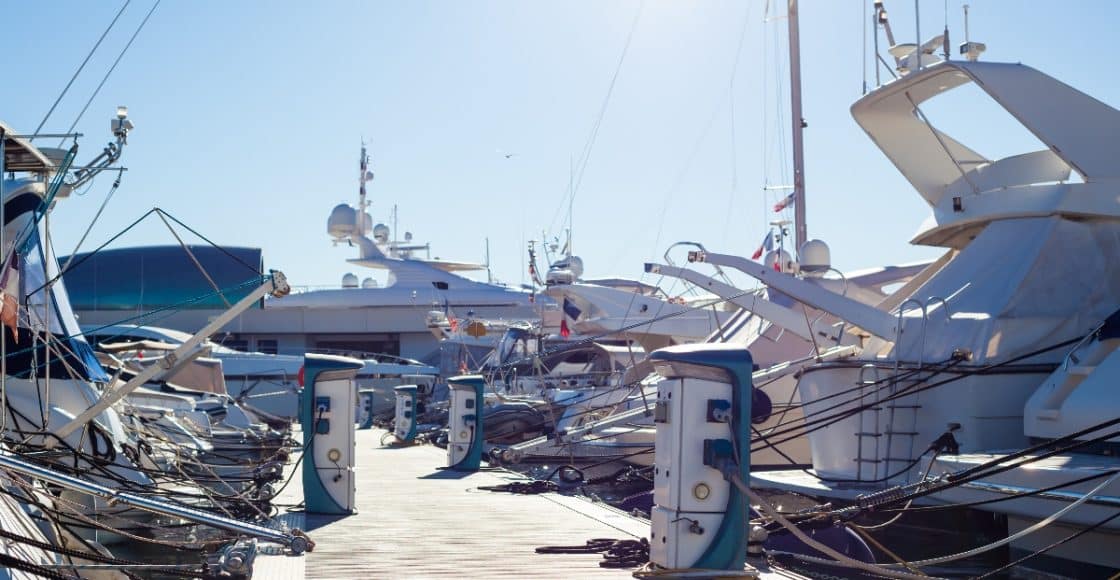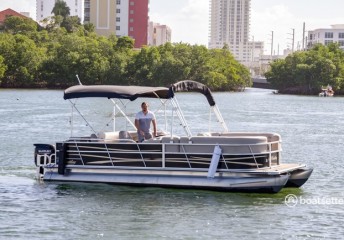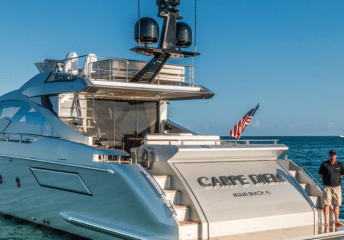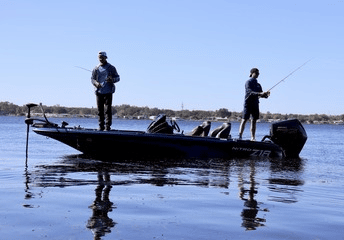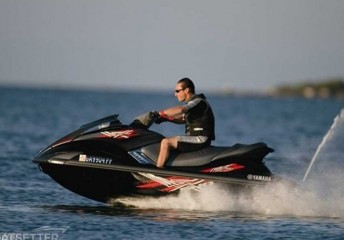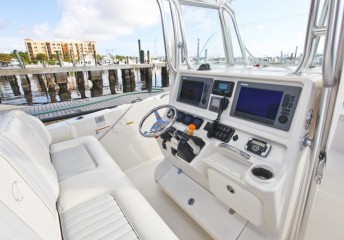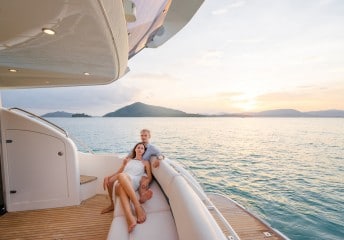Top 5 Benefits of Switching to an Electric Boat Motor
Last Updated on December 1, 2023 by Boatsetter Team
Electric boat motors used to be a novelty, but nowadays, even some of the biggest engine manufacturers are bringing electric options to market, with mass production starting to become a reality.
Engine-makers like Torqeedo, ePropulsion, Mercury Marine and Yamaha are working on increasing horsepower and features in electric motors. These engines currently can’t produce the same kind of power as bigger diesel- or gas-powered engines, but the electric power plants offer plenty of other kinds of benefits.
Here’s a look at the top five benefits of electric boat motors:
- Sweet, sweet silence
- Fume-free boating
- Lower running costs
- Not subject to bans
- Little-to-very-little maintenance
Rent. List. Share—Only at Boatsetter
1. Sweet, sweet silence
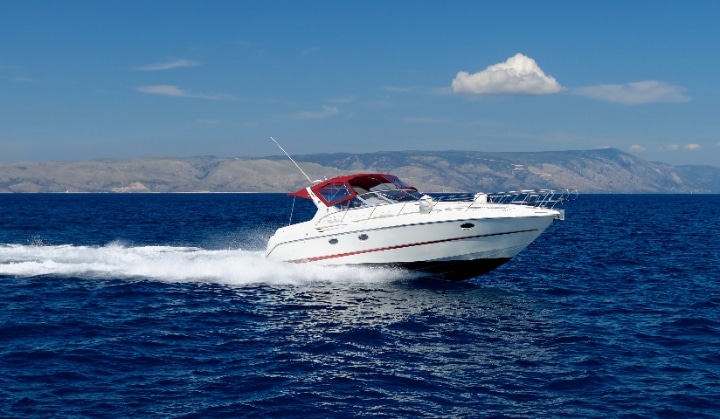
The first thing you’ll notice when switching to an electric boat engine is the blissful silence. Diesel- and gas-powered boat engines are loud—which can be fun when racing up the coastline in a Poker Run, but terrible if you’re trying to enjoy the peace and silence of a nice sunset cruise. The quietness of electric motors makes the entire experience of being out in nature even more enjoyable and relaxing.
2. Fume-free boating
Diesel- and gas-powered engines are, in a word, belchers. Just like engines powered by fossil fuels on land, these traditional boat engines cough up fumes that can bother some people to the point of causing seasickness. With electric boat motors, the cruising experience becomes entirely fume-free. This is not just good for people aboard the boat, but also for the environment, since noxious emissions are virtually eliminated.
3. Lower running costs
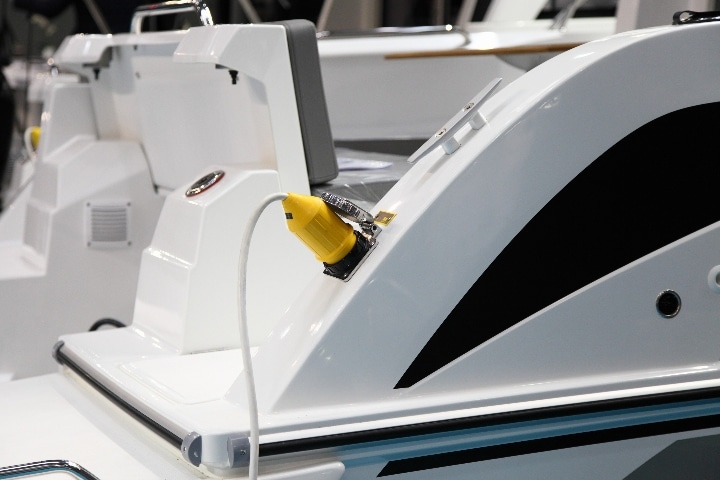
Buying electricity tends to be a lot cheaper than buying gasoline, whether you’re on land or on the water. This means that while the initial purchase price of an electric boat motor may be higher than the price to buy a gas-powered motor for a boat, the recurring costs will be lower with the electric motor—whose technology eliminates the need for stops at the fuel dock. There’s simply no more watching the price at the pump. Ever.
4. Not subject to bans
For boaters who cruise on lakes, regulatory bans of gas- and diesel-powered motors are becoming an increasing challenge (because of all that noise and belching). But for boaters who have electric motors, there’s usually no problem at all. That makes the electric boat motor far more future proof than the traditional motor powered by fossil fuels. The odds are quite low that anybody would look to ban quiet, fume-free electric motors in the near future.
5. Little-to-very-little maintenance
Electric boat motors are built with fewer parts than traditional engines. The fact that fewer parts exist means there’s less chance of parts breaking down throughout the life of the engine. Electric boat motors also eliminate the need for regular oil changes or replacement of spark plugs, which means less time spent hunkered over the motor with tools and more time spent out on the water with friends.
Go electric! Read more on sustainable boating
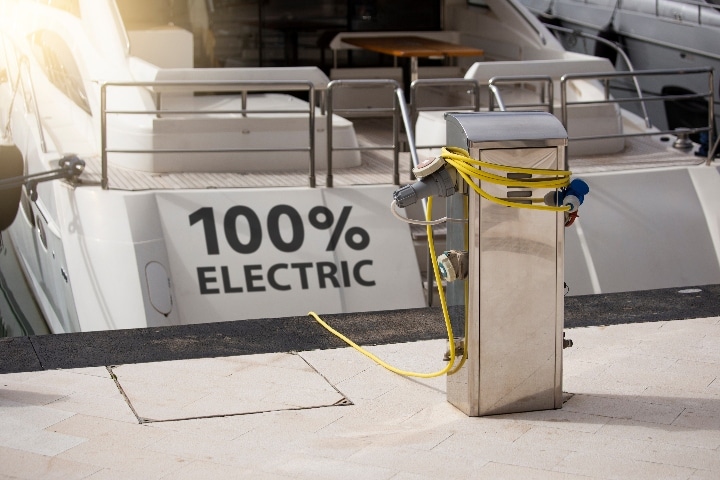
Learn more about #MindYourWake and Boatsetter’s sustainability initiatives here.
About us
Boatsetter is the go-to app for boat rentals and on-water experiences. Whatever the adventure, we’ve got a boat for that—Set sail, start the party, go yachting, make your trophy catch, and hone your watersports skills! Download the Boatsetter app (App Store | Google Play). Make sure to follow @boatsetter on Instagram, and tag us in all your boat day pictures for the chance to be featured.
Rent. List. Share—Only at Boatsetter

Kim Kavin has been on boats in more than 50 countries and islands, including in the Caribbean, Mediterranean, South Pacific, Indian Ocean and Southeast Asia. She grew up learning to steer a ski boat and Hobie Holder at her grandfather’s lake house in New Jersey, and went on to spend time aboard everything from America’s Cup racing sailboats to submarines.
Kim is a PADI-certified scuba diver and animal lover who always enjoys a good, long look around a coral reef. Her award-winning writing and editing regularly appears in national marine magazines and on leading websites. In her early years, she was a Dow Jones editing intern and a graduate of the University of Missouri-Columbia School of Journalism. When she’s not writing, Kim can usually be found hiking northwest New Jersey’s beautiful park trails with her adopted shelter mutt, Ginger.
